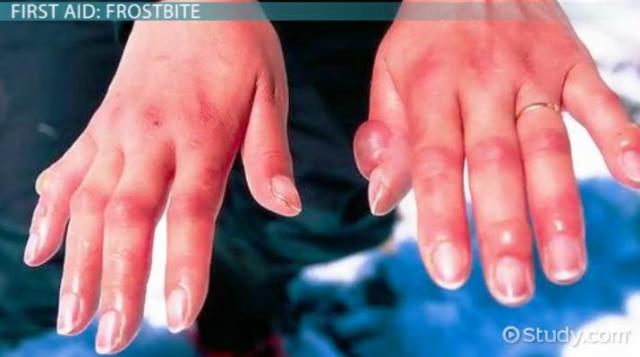Frostbite occurs when exposure to low temperatures causes freezing of the skin or other tissues. The initial symptom is typically numbness. This may be followed by clumsiness with a white or bluish color to the skin. Swelling or blistering may occur following treatment. The hands, feet, and face are most commonly affected. Complications may include hypothermia or compartment syndrome.
People who are exposed to low temperatures for prolonged periods, such as winter sports enthusiasts, military personnel, and homeless individuals, are at greatest risk. Other risk factors include drinking alcohol, smoking, mental health problems, certain medications, and prior injuries due to cold. The underlying mechanism involves injury from ice crystals and blood clots in small blood vessels following thawing. Diagnosis is based on symptoms. Severity may be divided into superficial (1st and 2nd degree) or deep (3rd and 4th degree). A bone scan or MRI may help in determining the extent of injury.
Prevention is through wearing proper clothing, maintaining hydration and nutrition, avoiding low temperatures, and staying active without becoming exhausted. Treatment is by rewarming. This should be done only when refreezing is not a concern. Rubbing or applying snow to the affected part is not recommended. The use of ibuprofen and tetanus toxoid is typically recommended. For severe injuries iloprost or thrombolytics may be used. Surgery is sometimes necessary. Amputation, however, should generally be delayed for a few months to allow determination of the extent of injury.

